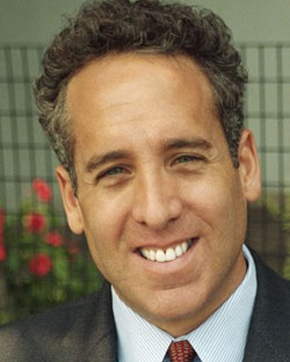5 Questions on European Terrorism with Stuart Gottlieb

Stuart Gottlieb is an adjunct professor at the School of International and Public Affairs, where he teaches courses on American foreign policy, counterterrorism and international security. He is also a member of Columbia's Saltzman Institute of War and Peace Studies. His most recent book, published in 2013, is Debating Terrorism and Counterterrorism: Conflicting Perspectives on Causes, Contexts and Responses.
Q. Belgium is a country with a population of 11 million, smaller than the New York metropolitan area. Why is it a hotbed of radical Islam?
A. Because ISIS and like-minded militant Islamist groups have their sights set on Europe as a major next phase in their war against the West. Belgium in particular serves multiple benefits to the jihadist groups—its capital, Brussels, is also the de facto capital of the European Union, and home to the headquarters of NATO; so its symbolism as a target cannot be more stark. Additionally, Belgium has historically been a fairly open country for immigrants from the Arab and Muslim world (roughly seven percent of its population is Muslim), yet has also had a very difficult time integrating its immigrant populations into broader Belgium society (which is itself divided among several ethnic and linguistic groups).
Q. Does Belgium have the military strength or intelligence assets to deal with these threats?
A. Not really. Belgium itself has a notoriously weak and disorganized intelligence and domestic security apparatus, which is all the more stunning considering its symbolic importance to the EU and the West; its large and often marginalized Muslim populations; and direct knowledge that hundreds of its own citizens have traveled to Syria and elsewhere for jihadist training. Al Qaeda, ISIS, and really all the jihadist groups see Europe as the soft-underbelly of the West, and they see Belgium as the soft underbelly of Europe. And they're right.
Related: Professor Austin Long on Brussels, Columbia News
Q. What impact will this attack, following on the heels of the Paris attack, have on other European countries? Is all of Europe at risk?
A. On the optimistic side, the recent attacks in Paris and Brussels may light a fire under all the European countries to re-evaluate their intelligence, domestic security, and homeland security capabilities—along the lines of the 9/11 Commission that the United States authorized after the Sept. 11, 2001 attacks—and begin beefing up their own domestic capabilities, and, even more importantly, intelligence sharing and law enforcement coordination across the national borders of Europe. On the pessimistic side, it will be more business as usual for Europe—squabbling, buck-passing, parochial nationalism, and unwillingness to make hard and often politically (and financially) difficult choices. That is, until a big enough attack occurs.
Related: Professor Brigitte L. Nacos on Brussels, Columbia News
Q. Does the apparent ease with which ISIS has infiltrated Europe suggest it can do the same in the United States?
A. Yes and no. The United States is certainly an even more important target for the militant Islamists, especially over the long term. But two things make the United States different. First, its greater distance from the current hot spots and war zones (Iraq, Syria, Libya, Yemen, Somalia, Nigeria) than Europe, which makes the out-and-in flow of homegrown and foreign fighters easier to contain. Secondly, and more importantly, the United States until now has done a much better job assimilating immigrant communities, including its relatively small (less than 1%) Muslim immigrant population, which, it should be noted, is disproportionately more educated and prosperous than many other immigrant groups in the United States—i.e., they are full and active participants in the \"American Dream.\" The global jihadists would like nothing more than to drive a wedge between America's Muslims communities, other Americans, and the United States government. They will continue to try to attack the United States and create a backlash against Muslim Americans; an outcome that would not only be devastating to Muslim Americans, but to the American experiment itself.
Q. What do we have to look out for next?
A. More attacks. Many people today are asking what can we do to better secure soft targets in the West, like airports, sporting events, etc. That's all well and good, but the more important question is what misguided policies have we been following over the past few years that have contributed to the rapid rise and spread of ISIS and its ability to project a global strike capacity (plenty to choose from), and how we can correct them moving forward. No matter how you slice it, our strategy moving forward must include two dominant components: 1) rapidly destroying the center of ISIS's power in Iraq and Syria (i.e, destroying the ISIS \"army\") and 2) directly taking on the ISIS/radical Islamist ideology which is currently on the march in many parts of the Muslim world, including diaspora communities in the West (i.e, destroying the Al Qaeda/ISIS ideological \"terror\" foundations). This perhaps could have been contained with smart and aggressive policies three or four years ago; but now it will likely be a decades-long battle.